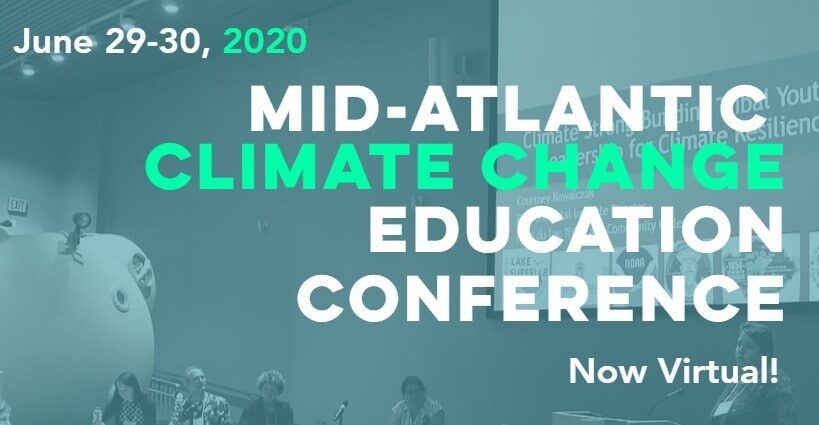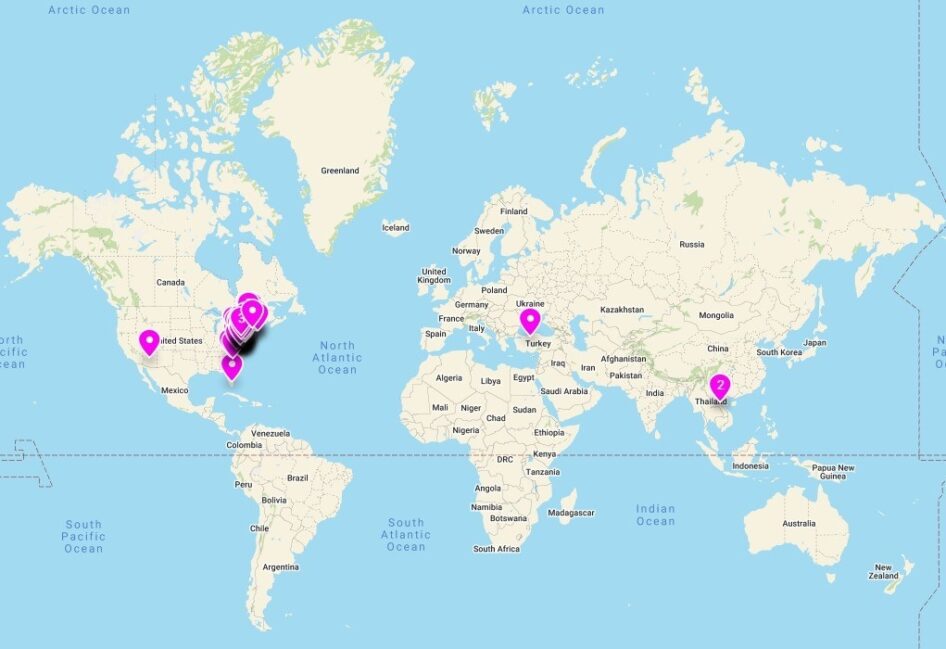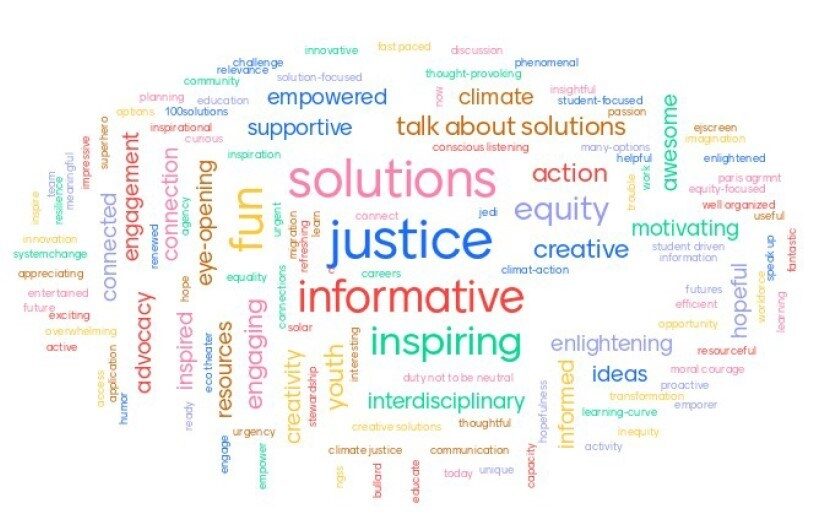Mid-Atlantic Climate Change Education Conference Reflection

This spring, when educators around the world transitioned to virtual teaching, the planning committee for the inaugural Mid-Atlantic Climate Change Education Conference (MACCEC) faced a fork in the road一to postpone or go virtual. The moment was brief; it was unanimously decided that the conference must go on.
Over the past seven years, members of the conference committee have worked together to organize and host Climate Academies through the Maryland and Delaware Climate Change Education Assessment and Research program (MADE-CLEAR). The Academies brought together formal and nonformal educators from across Maryland and Delaware to learn, as well as to develop and support the integration of climate change education programming. These Climate Academy alums now had years of climate teaching experience to share. The number of teachers, schools, and organizations in the region integrating climate change into their programming has grown significantly, but there is always more to learn一new tools, new lessons, new perspectives, and new techniques.
The conference moved to a virtual platform, and word spread. The end of June, when the conference kicked off, almost 300 people were ready to log on. The audience represented schools, nonprofits, and government agencies; registered educators taught pre-K to college students, adults, and community members. Though the conference focused on the mid-Atlantic region, attendees joined from across the country and around the world.

Frank Niepold of the NOAA Climate Program Office opened the conference by making a case for accelerating climate action through community engagement. Engagement includes working with all community members including educators, community leaders, and indigenous and frontline communities. Niepold also emphasized the critical role youth play in this work.
Formal educators were front and center for the first day’s final strand on “Climate Change in the Classroom.” With the recent news that New Jersey became the first state to require climate change education in schools, we were all eager to learn from experienced educators.
High school teacher Hema Bhaskaran reminded us that regardless of the topic, you need to engage your students with something important and personal to them一and food works for just about anyone! Changing what you eat and where you get your food can be an effective climate action and one students can get involved with. One attendee reflected, “I am going to work on implementing more lessons for students to help solve climate problems rather than just present climate problems.”

The idea of reframing climate change education to focus on action and solutions continued on Day 2. Don Boesch, from the University of Maryland Center for Environmental Science, opened the day with a challenge to scientists and educators “to focus more on solutions, not just causes and effects, of climate change.”
The first strand of the final day focused on “Climate Science.” Attendees connected with science professionals, learned about current and emerging climate-related science topics, and participated in conversations about integrating those topics within education programming. We heard about the effects of climate change on agriculture and health, the importance of blue carbon in wetlands, and tips on how best to communicate about this science. Many attendees amplified the message from Julie Sweetland’s (from the Frameworks Institute) thought-provoking presentation on how to improve climate change communication: don’t repeat myths, don’t highlight climate science controversy and denial, and frame communication to spark long-term thinking.
By the end of so much lesson and information sharing, attendees were excited for the final strand on “Individual and Community-Level Solutions.” Dr. Elizabeth Bagley of Project Drawdown set an inspiring tone for pushing the work forward. She opened her talk with the question: “What comes to mind when you think of climate change and global warming?” The chat box was quickly filled with thoughts focused on impacts and causes like: carbon emissions, urgent need to act, food insecurity, sea level rise, extinctions, and world-wide impacts.
The audience responses led right into the goal of her presentation. Communities need to “shift conversations toward solutions and away from doom and gloom.” We need lessons to not stop at the science but continue through to solutions and actions.
"Solutions are tools of possibility to a seemingly impossible challenge" @eabagley #maccec20 #ClimateChange
— Lexi Reynolds (@MissLReynolds) June 30, 2020
The strand sessions complemented Dr. Bagley’s message with talks on how to present climate change with a hopeful tone, how to involve the whole community in climate resilience efforts, and how to draw on inspiration from solution-focused education that is already under way.
Overall, how did the inaugural Mid-Atlantic Climate Change Education Conference go?
- “Nice to have something to bring back the positive part of education after such a hard ending to the school year.”
- “This conference provided lots of unique perspectives on how to approach communicating the issue of climate change. I find I could make a stronger, more hopeful case for dealing with climate change in my classroom and this conference gave me some great ideas.”
- “I valued hearing from teachers how they are teaching about climate change.”
- “I LOVED the focus on solutions and the focus on climate change as an intersectional issue.…”
The conference ended with a question: What next steps will you take for climate education?
- “Keep talking about climate change and SOLUTIONS!!!”
- “Instill hope into young students and empower them to take action on an individual and community level.”
- “Not only new climate programming at our center but integrating climate into existing programs. For community一working with and supporting frontline communities.”
Like the attendees, the conference planning team is energized by the experience and gearing up for MACCEC 2021. If you are interested in getting periodic updates from the conference team, please share your email address with us.
